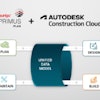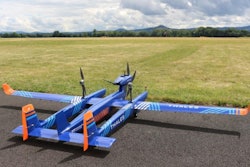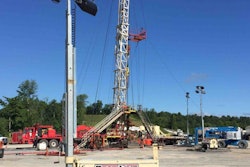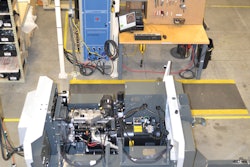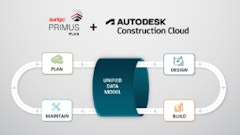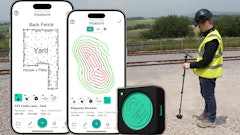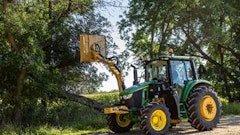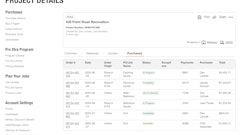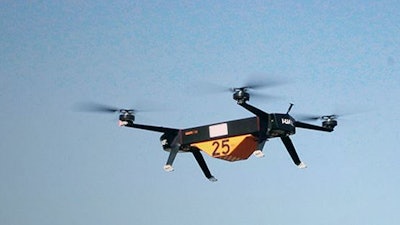
Drone producer Leonardo has test flown a drone that carried a 55-lb. payload, an important milestone in drone technology that could eventually impact the construction industry.
Leonardo is experimenting in the field of advanced air mobility as it tries to accelerate the introduction of drones into civilian skies and develop drone technology.
In a recent collaboration with the city of Turin and D-Flight, Leonardo conducted a series of test flights in which a drone weighing 286 lbs. and powered by an electric propulsion system carried loads of up to 55 lbs.
The demo is the next step towards a new model of air transport logistics for medium-range routes, defined as those up to 31 miles.
The project, called “Sumeri: Si Salpa!” is the first in Italy and among the first in the world in which a remotely-piloted system with these characteristics has flown in an urban environment. It is part of a series of experiments that will lead towards a future in which drones carry hundreds of pounds of goods will be flown up to 31 miles by operators using a Beyond Visual Line of Site (BVLOS) control system.
“This initiative is an expression of Leonardo’s vision to make cities more functional, sustainable and ecologically-friendly through the application of new technologies in the fields of unmanned aircraft and logistics, applications which can also be used in times of emergency, such as those we’ve seen in recent months," says Laurent Sissmann, senior vice president, unmanned systems at Leonardo. "Artificial intelligence and automation, combined with Leonardo’s system-level expertise in aeronautics, are enabling us to bring forward exciting new types of air operations in complete safety.”
The trial incorporated three factors that will be essential in the development of logistics services for urban environments: the high load capacity of the drone, a high level of automation and advanced capabilities for dealing with air traffic management. The benefits include faster deliveries, lower costs and reduced pollution due to the drones’ electric propulsion systems.
The demonstration is being facilitated by an air traffic management software platform developed by D-Flight, which is also providing QR code registration and release services for the experiment. D-Flight is also taking the opportunity to trial a new mobile app that can facilitate mission planning and in-mission tasks. The use of such systems is highlighting the company’s efficient, innovative and practical response to future European regulation on ‘U-space’, airspace specifically designated for remotely-piloted aircraft. D-Flight offers one of the first operational European software platforms for U-space, allowing traditional aircraft and drones to co-exist in the same airspace. The company’s ability to support the progressive introduction of new drone services will allow for the sustainable development of an already growing sector.


